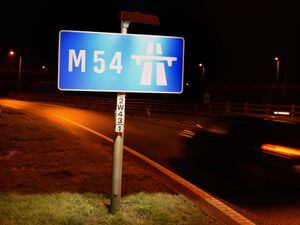Telford MP speaks out about great aunt who fought for women's right to vote
Telford's MP has spoken out about her great aunt who was a leading Scottish suffragette and fought for the right of women to vote.

Janie Allan was born in 1868 into a wealthy Glasgow family that owned the Allan Line shipping company.
Her great niece, Lucy Allan, was just four-years-old when she died in 1968.
The Telford MP says she is surprised there is so little known about her within the family.
In May 1902, Janie was instrumental in re-founding the Glasgow branch of the National Society for Women's Suffrage as the Glasgow and West of Scotland Association for Women's Suffrage (GWSAWS), and was a member of its executive committee.
She was a significant financial supporter, and as one of the GWSAWS vice-presidents she took up a position on the National Union of Women's Suffrage Societies (NUWSS) committee in 1903, in order to represent the association following their affiliation.
Ms Allan said: "Janie Allan was a militant socialist suffragette who played an active part in getting votes for women.
"So active in fact was she that she was imprisoned in Holloway and was force fed for her part in breaking windows as part of the protest movement to bring about women's suffrage."
In early March 1912, along with over 100 others Janie took part in a window smashing protest in central London.
She was arrested, tried, and sentenced to four months in Holloway Prison.
Her imprisonment was widely publicised, and around 10,500 people from Glasgow signed a petition to protest for her freedom.
While in prison Janie used her privileged position to improve the levels of comfort for her inmates, including distributing confectionery and fruit to fellow suffragettes.
Janie started a hunger strike but ended up being force fed.
Lucy Allan said: "She was part of a big family of high achieving brothers who set up a business that was very successful.
"I knew all about them and I saw pictures of them on the walls and there are books written about them. She never was really referenced in any of that.
"I find that really intriguing that somebody who should be a role model for future generations is given almost a byline in a book about what otherwise was a story about a business family."
Ms Allan said she would have loved to have met her great aunt, adding: "To be marching, protesting, to be involved in violent protest is clearly so far removed from what was expected of women at that time.
"Even today, it is something we would say is not behaviour that we expect, so I suspect within the family there could have been some sense of perhaps shame or disappointment that she was not a typical woman.
"She was certainly never someone my family grew up talking about or suggesting was a hugely admirable figure in our family."
In 1918 the Representation of the People Act was passed which allowed women over the age of 30 who met a property qualification to vote.
It was not until the Equal Franchise Act of 1928 that women over 21 were able to vote and women finally achieved the same voting rights as men.





